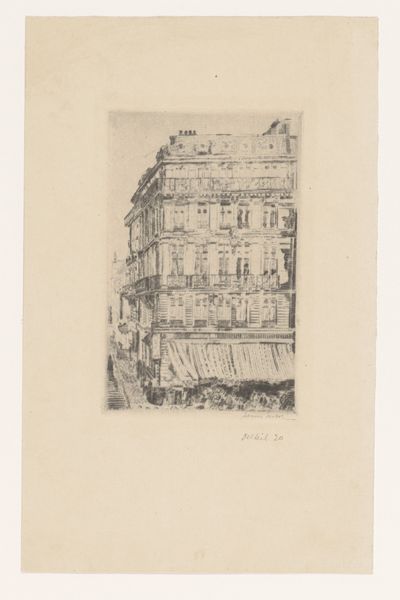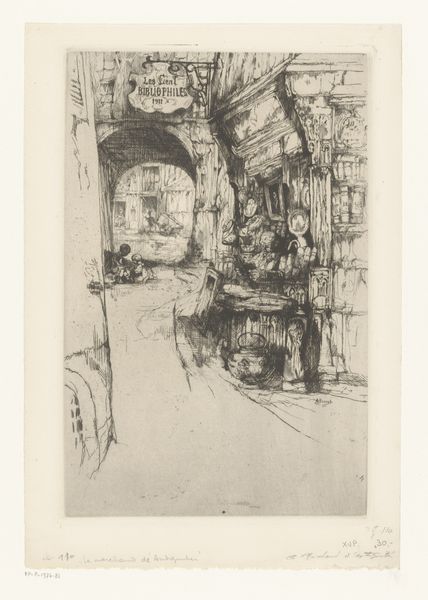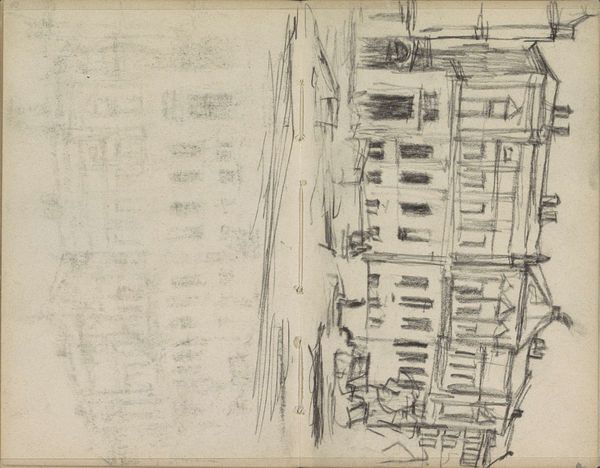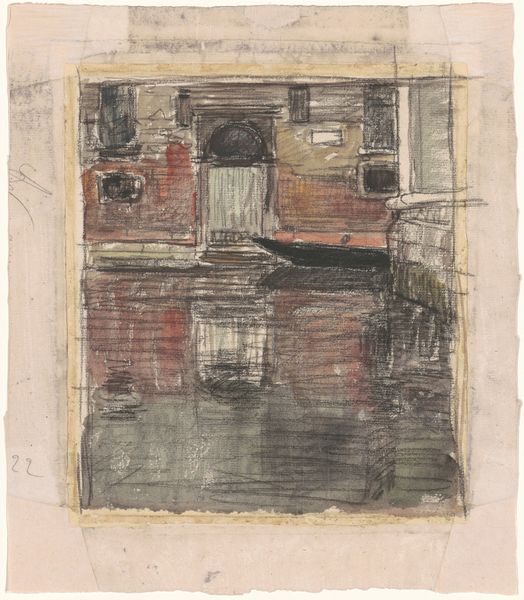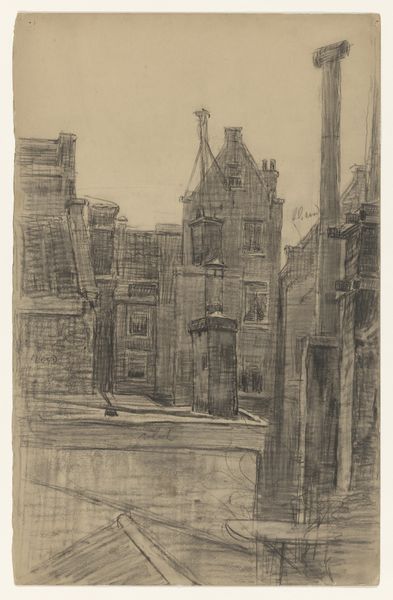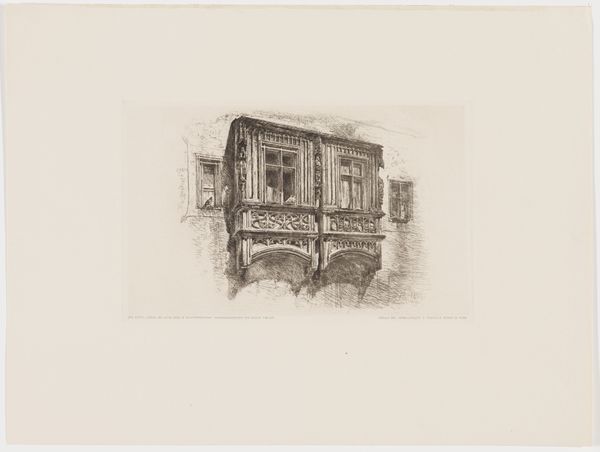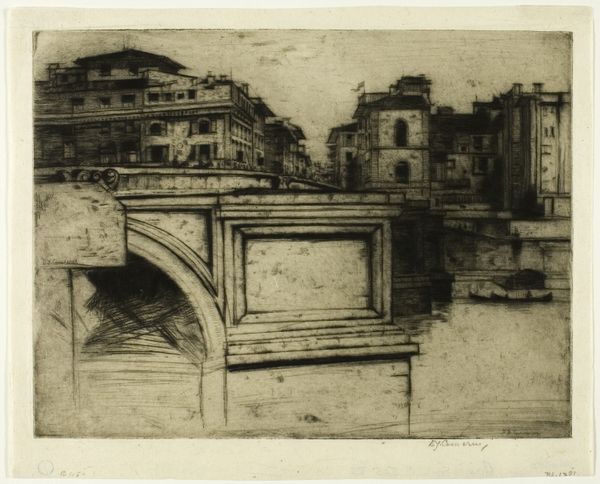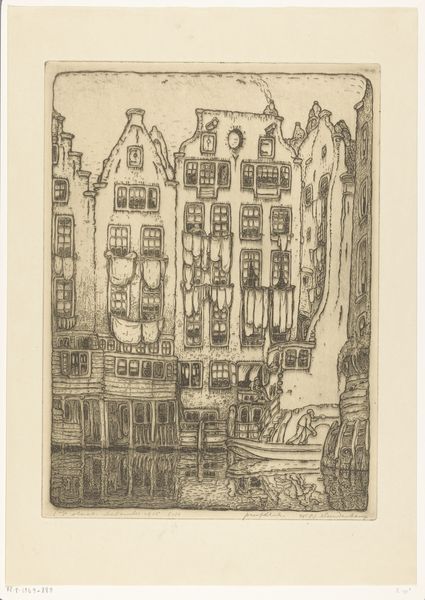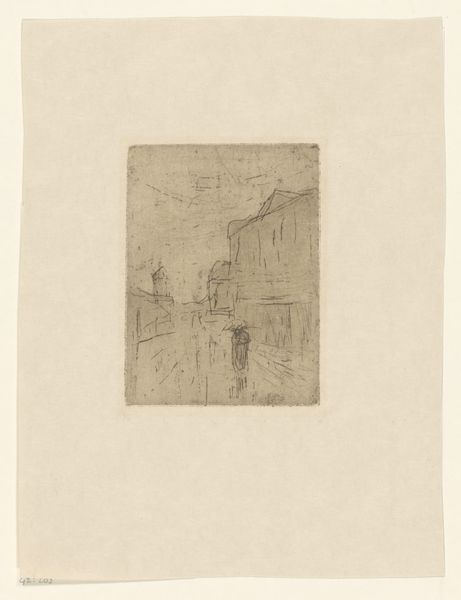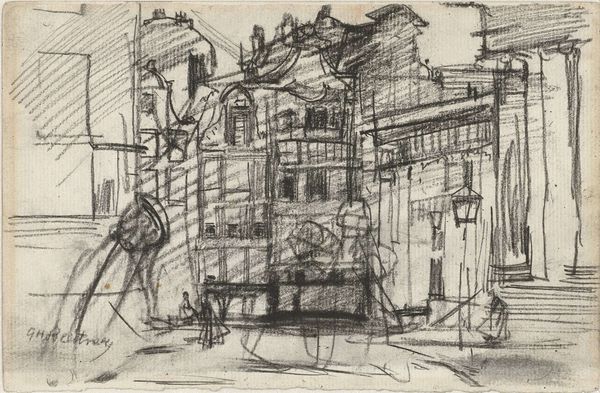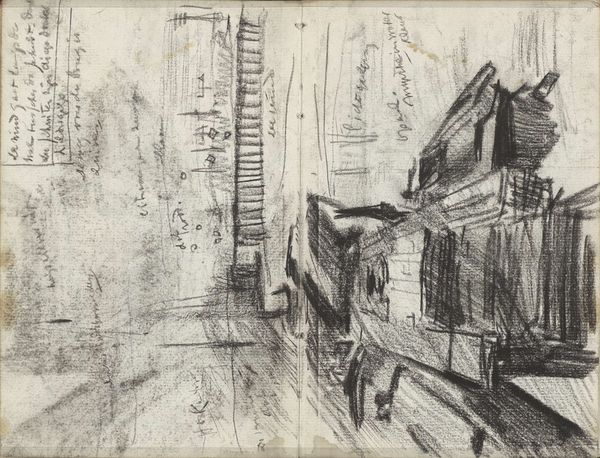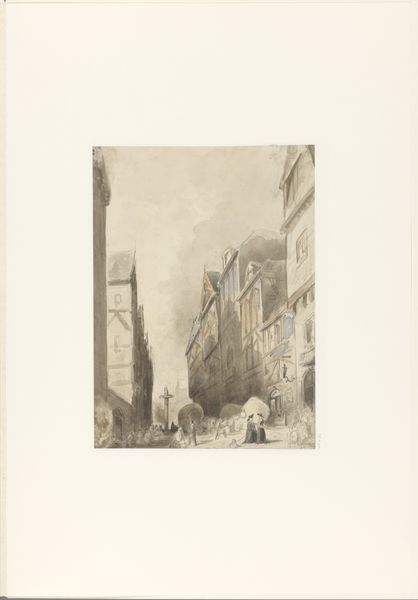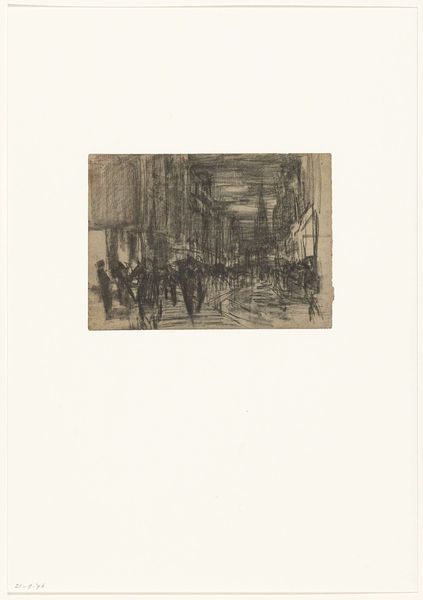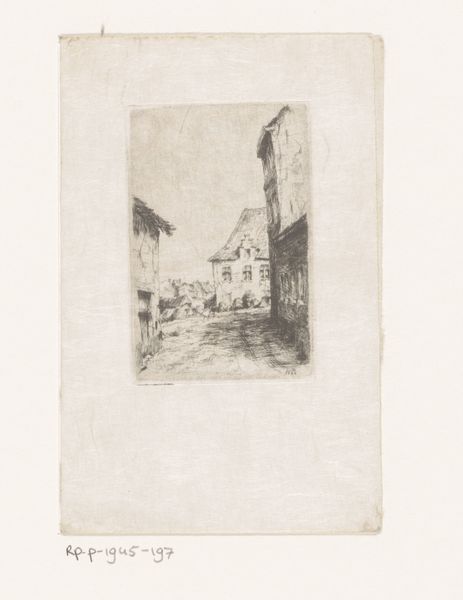
print, etching
# print
#
etching
#
line
#
cityscape
Dimensions: height 393 mm, width 495 mm, height 500 mm, width 617 mm
Copyright: Rijks Museum: Open Domain
Editor: So, here we have Dirkje Kuik's etching, "De Nieuwegracht oude huizen bij de Hamburgerbrug," made before 1990. The first thing that strikes me is the level of detail achieved with just lines – how does the etching technique contribute to its overall effect? Curator: Well, consider the labor involved in etching – the meticulous process of scoring the metal plate. Look closely. See how the density of the lines creates the tones, almost like a woven fabric? It blurs the lines between traditional 'high' art like painting and more industrial practices. Think of the printmaker as a kind of factory worker, repeating precise actions. Editor: That's a completely different perspective. So, you’re focusing less on the "artistic vision" and more on the actual making and the labor involved? Curator: Precisely. The choice of subject, a cityscape, becomes less about aesthetic beauty and more about the infrastructure that supports urban life – literally etched into the very fabric of the print. Notice how the buildings seem almost to emerge from the earth. Does that suggest something about our relationship with the built environment, the materials we consume? Editor: It's true; the etching almost renders the buildings as impermanent, like they are decaying or being reabsorbed. I suppose I hadn't considered how the means of production—the act of etching itself—shapes our perception. Curator: Right, it's about understanding how material conditions influence what we see, and how we value art. Do we value the end product more than the labor that produced it? That's what I find most engaging about this piece. Editor: I'll definitely look at etchings, and art in general, differently now. It’s interesting to consider how much the process shapes our experience of a piece. Curator: Exactly. It's not just about what's depicted but *how* it's depicted, and what that says about the society that produced it.
Comments
No comments
Be the first to comment and join the conversation on the ultimate creative platform.
